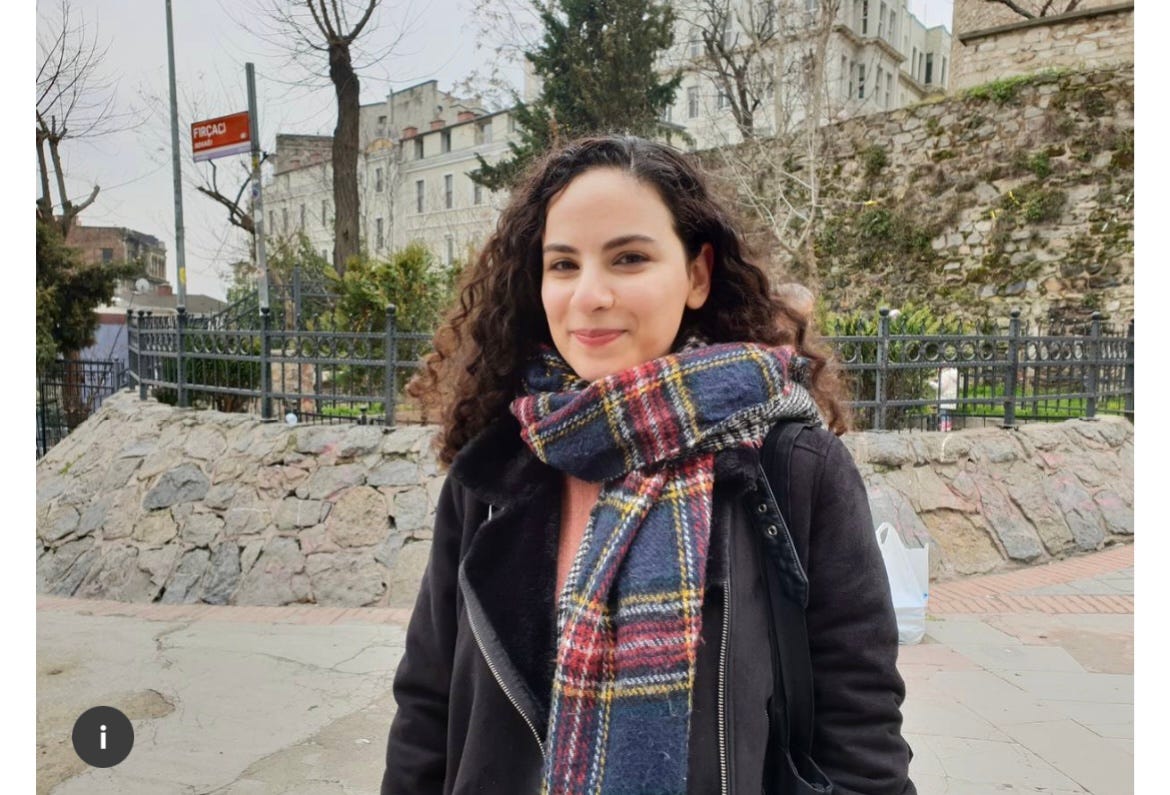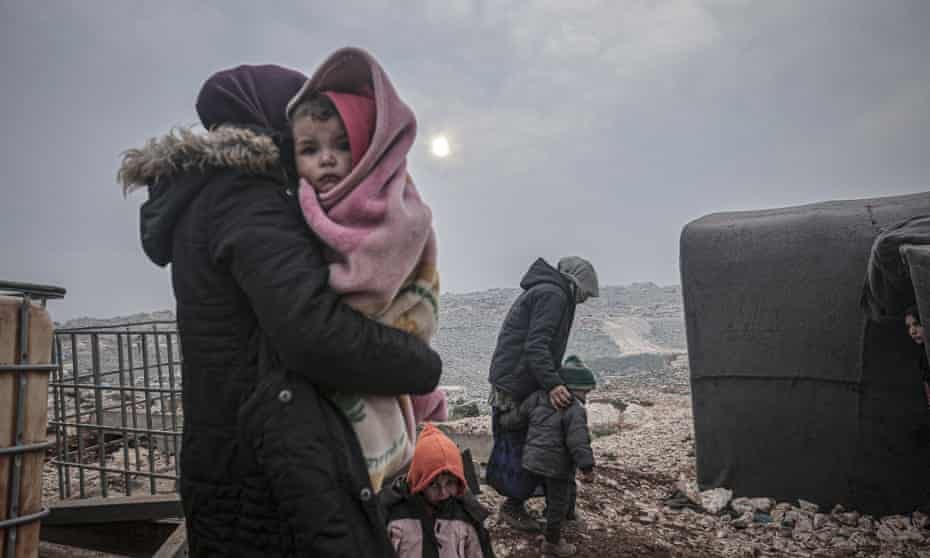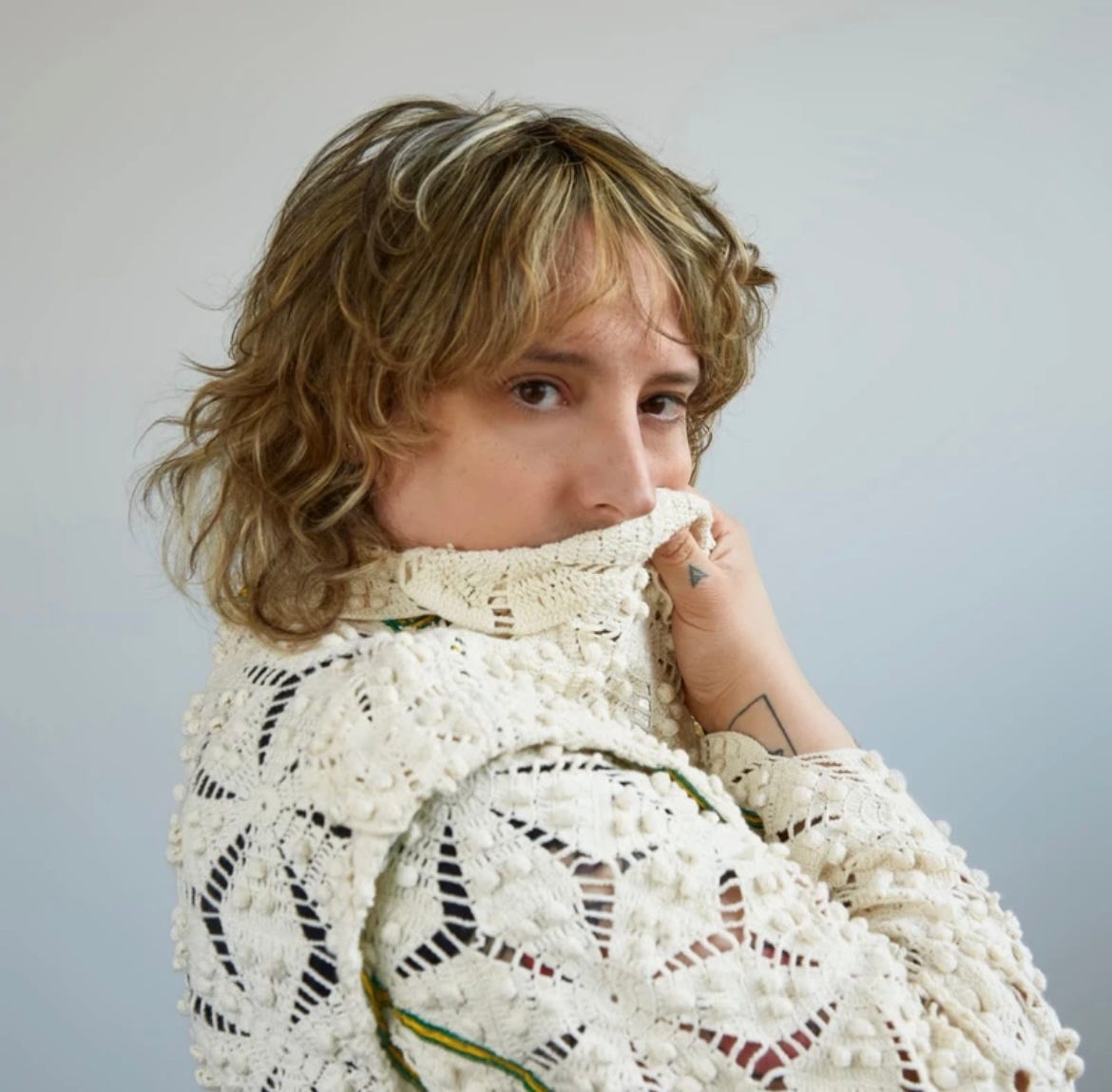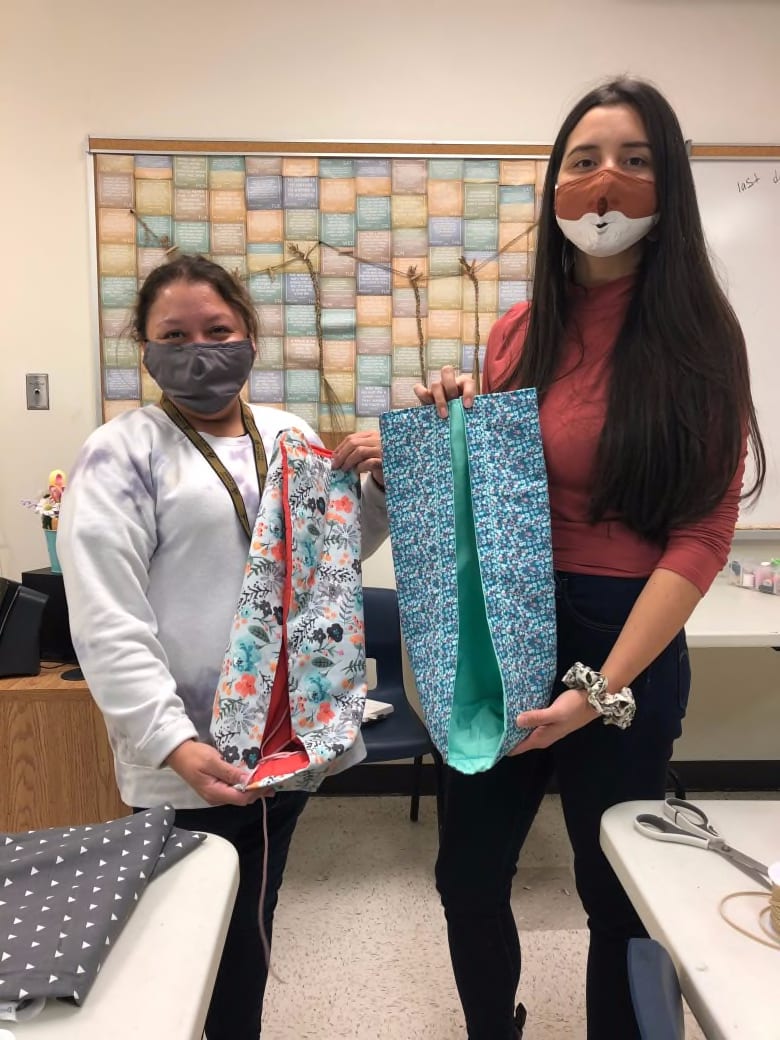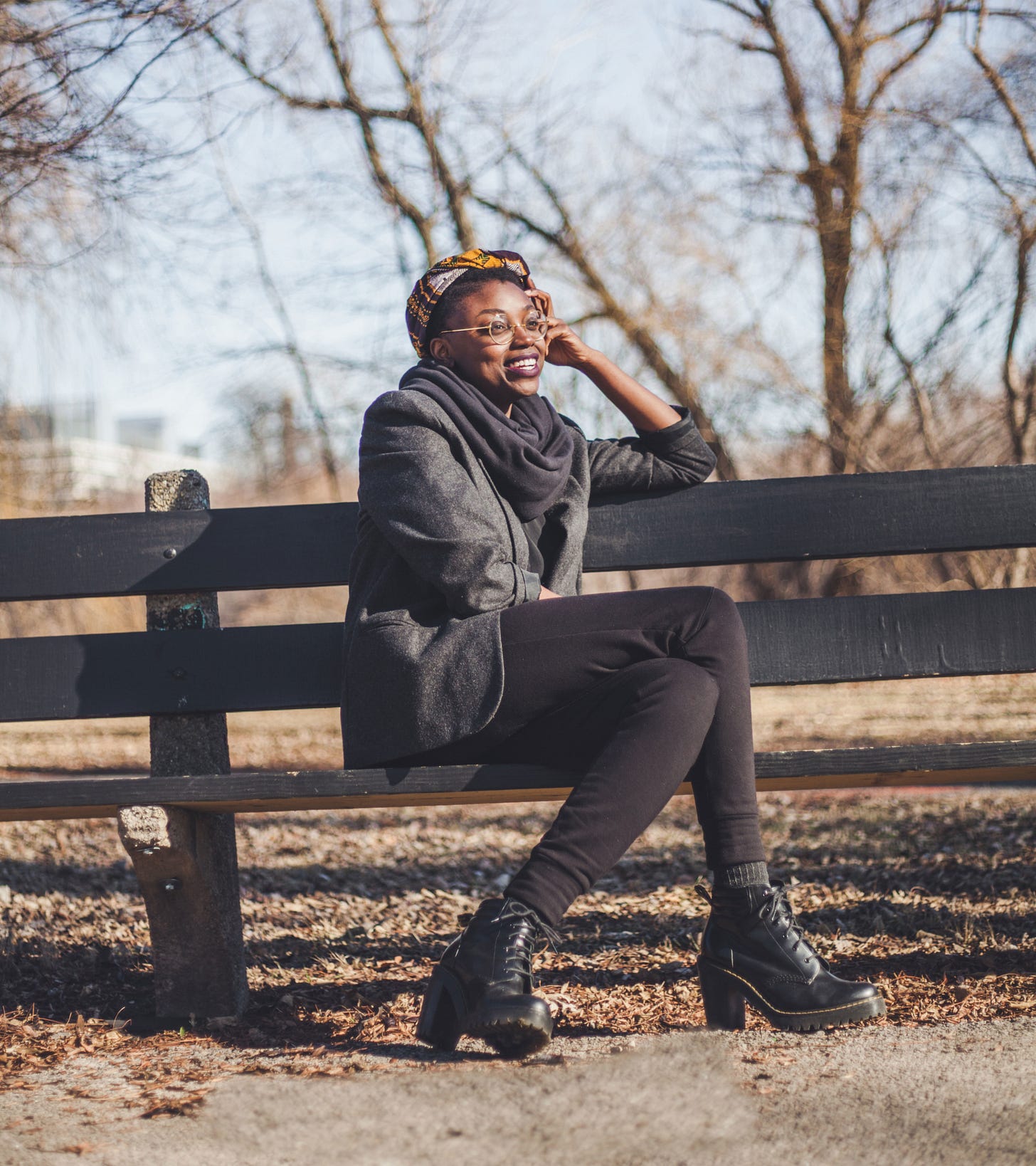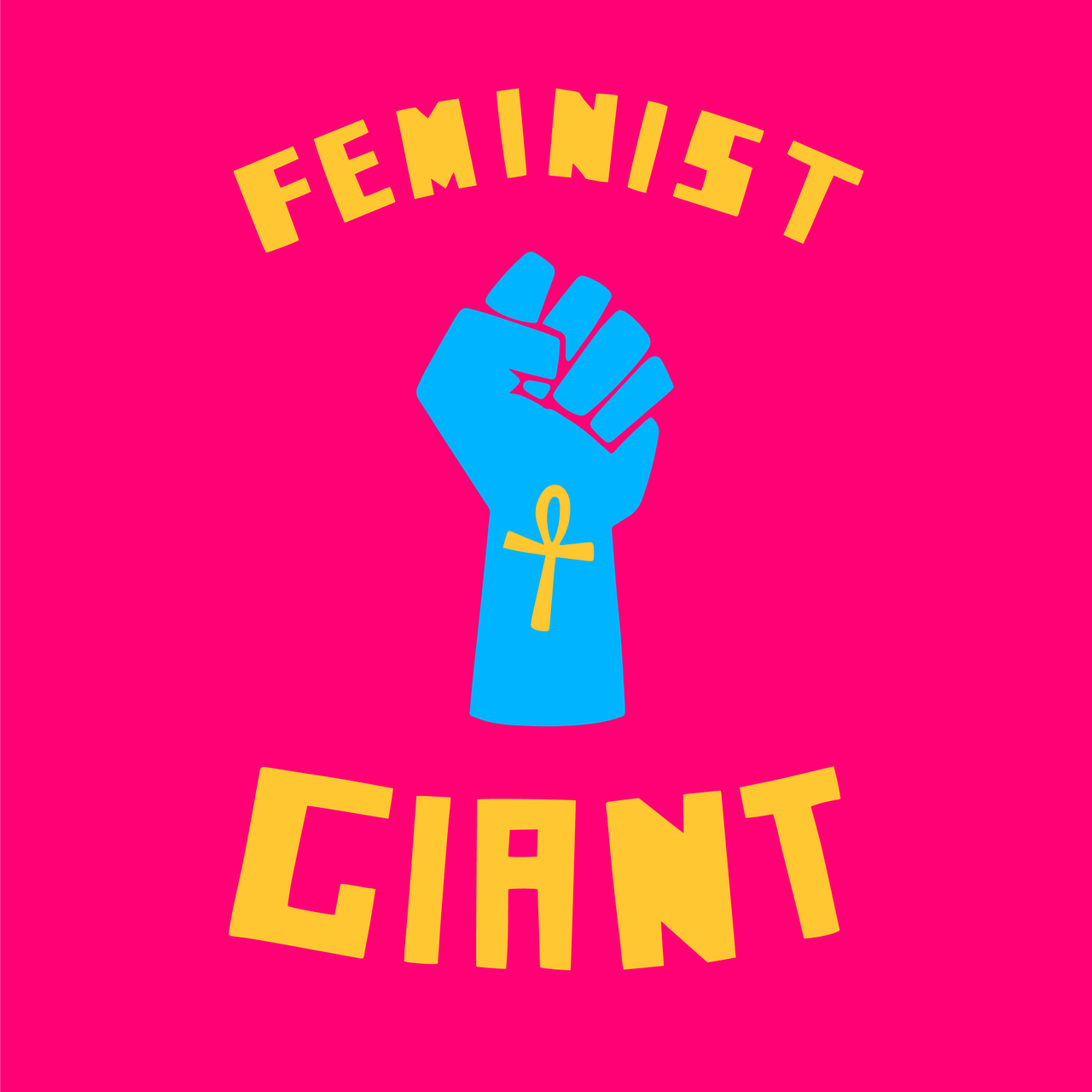Global Roundup: Turkey Fight for Free HPV Vaccine, GBV in Syria’s Widow Camps, Trans Advocate Book Tour, Indigenous Woman Revives Traditional Motherhood Practices, Queer Environmental Poetry
Curated by FG contributor Samiha Hossain
Yagmur Varkal, 24, who won a lawsuit against Turkish health authorities to get her human papillomavirus (HPV) vaccine costs refunded, poses for a photograph on March 17, 2022. Beril Eski / Thomson Reuters Foundation
A student in Turkey won a refund for the HPV vaccine in court, which campaigners hope will set a precedent and pave the way for universal access in the country. 24-year-old Turkish university student Yagmur Varkal’s legal fight was backed by the Children and Women First Association campaign group.
We're very happy about the outcome. Our legitimate cause has been validated. But we will not stop, our main target is to make sure that the vaccine is available for all girls and boys. - Yagmur Varkal
Human papillomavirus (HPV) is one of the most common sexually transmitted infections. The virus can cause cancer of the cervix in women and transgender men, as well as cancers of the throat and penis. Cervical cancer is the fourth most common cancer in women globally, and claims about 1,250 lives in Turkey each year. But vaccinating girls against HPV can cut cervical cancer cases by about 90%. More than 100 countries provide the vaccine to girls for free, according to the World Health Organization.
Turkey’s struggling economy means that the vaccine is too expensive for most women and girls. Conservative social values are also a barrier to broadening access to the jabs in Turkey, where public conversations about sex or women's health are typically considered taboo, women's campaigners said.
More than 25 women have applied to Turkish courts for their own refunds as part of a class-action lawsuit supported by the Children and Women First Association, which has also worked with pharmacists lobbying for free vaccination.
There is only one goal left before us: a decision must be made by politicians to include the HPV vaccines in the national immunization programme. - Cem Kilinc, a pharmacist leading the free vaccination campaign
Approximately 2.8 million Syrians are living in camps for internally displaced people in the north-west of the country. Photograph: Anadolu Agency/Getty Images via The Guardian
CW: gender-based violence
Nearly 7 million Syrians have been displaced internally since conflict erupted in 2011. About 2.8 million are living in an estimated 1,300 camps for internally displaced people in the north-west of the country. So called “widow camps” have conditions deemed “drastically” worse than in general camps. There is little or no delivery of essential services for residents, who are experiencing what aid workers have described as “a shocking crisis within a crisis” and “the worst of the worst’’ protection challenges. Access has been restricted to local NGOs.
Of the 419 people interviewed by the NGO World Vision in 28 camps, home to tens of thousands of single women – including those who are divorced or whose husbands are missing – and their children, approximately one in four women said they had witnessed sexual abuse in the camp on a daily, weekly or monthly basis. Children in the camps have been found to be severely neglected, abused and forced to work while mothers are at “breaking point” psychologically. More than 80% of women say they do not have adequate healthcare and 95% expressed feelings of hopelessness.
Women are not allowed to freely leave the camps, said the NGO. Unable to seek paid employment or support their families, some find they have “no choice” but to engage in so-called survival sex with male guards and camp managers.
We are seeing the world, rightly, express solidarity with the victims of the conflict in Ukraine and governments generously committed to do whatever it takes to meet the humanitarian needs there. But Syrian widows and their children deserve the same level of empathy, compassion and commitment. Their pain, their desperation, their need is no less than anyone else who is fleeing conflict. - Alexandra Matei, a lead author of the report
Fatima (not her real name), a mother of three in one of the camps, suffers from severe back pain but is unable to access healthcare. She said it was not safe for women and girls to go to the mountain to fetch wood to heat themselves or cook.
It is not safe at all. I have to take my neighbour or anyone with me just to not go alone. I cannot send my children on their own either, because it is not safe. I do not have anyone. - Fatima
Given that less than half of the Syria humanitarian response plan was met last year and more than 14 million Syrians were in need of some form of aid as of last month, it is essential to amplify the horrific findings of this report and to push for an urgent international response to this crisis.
Via VICE
Grace Lavery is a trans academic and writer who is known for her commentary on trans issues on Twitter. She has been touring to promote her memoir, Please Miss: A Heartbreaking Work of Staggering Penis. VICE talked to Lavery about being banned on twitter and the harassment she faces.
Lavery was banned from Twitter in February. In a fight with another Twitter user, who tagged the Home Office and claimed Lavery should not be allowed to enter the UK because she intends to “incite public order offenses,” Lavery flippantly responded, “oh I hope the queen dies also.” She believes the ban was at least in part due to her trans advocacy on the platform. After she was banned from Twitter, her critics turned to her mother who was bombarded with intimate images of Lavery and her husband.
Her mother being targeted has led Lavery to prioritize safety more highly, pulling out of a planned debate with the gender critical feminist Julie Bindel over concerns about the audience that might show up.
I'm scared of the people who are sending porn to my mum because I don't think that those people are acting within the usual bounds of political advocacy, and I think those people are likely to cross other lines. - Grace Lavery
One of the most high-profile engagements of Lavery’s tour was an interview with Emma Barnett on the show Woman’s Hour on BBC. The BBC has been widely criticized for its reporting on trans people, and its treatment of trans contributors. Lavery says she was struck by how she was being asked the same question over and over again – “Can a woman have a penis?”
The question is designed to be lurid rather than clarifying. We’re supposed to respond to that question by going ‘Oh, you know, nowadays, even women can have penises. What a crazy world we live in.’ - Grace Lavery
Lavery believes that trans people deserve more than many of them feel comfortable demanding. She does not think the civil rights they are advocating for are a gift. Still, she is optimistic about the future of the LGBTQ+ community in Britain. She was particularly buoyed by the united front presented by LGBTQ+ organizations in the face of the government continuing to allow conversion therapy for trans children.
Kent (right) had an event at Dalbrae Academy teaching youth about moss bags on Nov. 18, 2021. (Submitted by Nina Kent) via CBC
Nina Kent, an entrepreneur and artisan, learned about the traditions when she became a mother, thanks to oral teachings from her family. Now she wants to share them with as many mothers as possible.
Moss bags keep the baby warm and tightly wrapped in a womb-like space, which improves sleep. Traditionally, the bags held moss inside, which had medicinal properties and acted like a diaper. It was antiseptic and absorbent, keeping the baby dry and rash-free. Today, a soft material or blanket is used to swaddle the baby on the inside, and the outer layer can be any kind of breathable fabric. Leather can be used to lace up the front. On the outside, some moss bags have ribbon patterns and beadwork on them, while others may have patterns or a solid colour design.
Only when Kent became a mother did she learn that she grew up in a moss bag herself. Many Indigenous ways have been lost due to residential schools, oppression of language and history. But Kent reached out to an elder in her community and her parents to learn more about them.
I think it's something that's really important to share and make sure that every Indigenous mother knows how to make one for their child. - Nina Kent
Since then, she has been hosting small in-person workshops as well as virtual workshops outside of Nova Scotia. Kent said that the work is very rewarding for her, and she was thanked by Mi'kmaw Elder and Knowledge Keeper Jane Meader from Membertou First Nation for her work in bringing these teachings back to Unama'ki.
…that's how it used to be, traditionally. Mothers would help one another. - Kate Jadis, from Epekwitk First Nation
Kate Jadis is friends with Kent and has taken her moss bag workshop. Jadis believes that reclaiming these traditions helps Indigenous mothers embrace their culture, and that they should not be ashamed about wanting to keep their babies close for both the children's comfort and their own.
That's the first voice that our children are hearing, is their mothers, and the comfort comes from being close to their moms. Making them [moss bags] is allowing us to have those conversations again with grandmothers, aunties and mums...about bringing that tradition back. - Kate Jadis
Via Atmos
Kemi Alabi, the author of debut poetry collection Against Heaven, selected by Claudia Rankine as winner of the 2021 Academy of American Poets First Book Award, speaks to Atmos. The Nigerian-American poet, cultural strategist, and shapeshifter has created Black ecological kinship and queer environmental poetry.
I feel really rooted in a lineage of Black queer and larger QTPOC poetics that have existed outside of academic and other literary institutions…Language is such a primary building block of our world, and the sonic is a critical component of poetry—it can alter the molecules in a room and enliven in a particular way. - Kemi Alabi
Alabi says they have been influenced by doing cultural strategy work in a movement-building context for the last eight years, where they have found a rich writing community. They also discovered the power of language in constructing our imagination through studying political science and philosophy. However, Alabi recognizes that in many ways, language has been used to estrange humans from the natural world.
I’m Yoruba Nigerian and my father never taught me his language so I’m this monolingual speaker, who is a poet. My one medium is this tool that has been wielded against all of not just humanity, but the Earth too. But also, how do I use language to un-become? What are ways to reclaim the origins of language’s power without replicating some of what empire has done? - Kemi Alabi
When asked how their work re-centers queerness in spiritual and environmental engagement, Alabi says that queer folks are able to find pleasure by defying the hetero-patriarchal norms of religion. They think it is defiance to want to lean into what is actually pleasurable.
Alibi thinks that people have seen the way the pandemic has been approached and know the climate crisis will be approached in a similar way, where the rich and powerful will be able to escape the consequences.
What type of society do we create when we center pleasure and care instead of extraction, knowing that what is being done to the Earth is what is also being done to our bodies: exploitation and extraction? I think that there is kinship that queer Black folks can more easily create to the Earth than we can to white patriarchy; an important key to circumventing what the empire might have ordained for us. - Kemi Alabi
Against Heaven, explores pleasure as an awakening to the senses, and that awakening being an opportunity to reconnect to our bodies—and the entire natural, sensuous world.
Samiha Hossain (she/her) is a student at the University of Ottawa. She has experience working with survivors of sexual violence in her community, as well as conducting research on gender-based violence. A lot of her time is spent learning about and critically engaging with intersectional feminism, transformative justice and disability justice.
Samiha firmly believes in the power of connecting with people and listening to their stories to create solidarity and heal as a community. She refuses to let anyone thwart her imagination when it comes to envisioning a radically different future full of care webs, nurturance and collective liberation.


